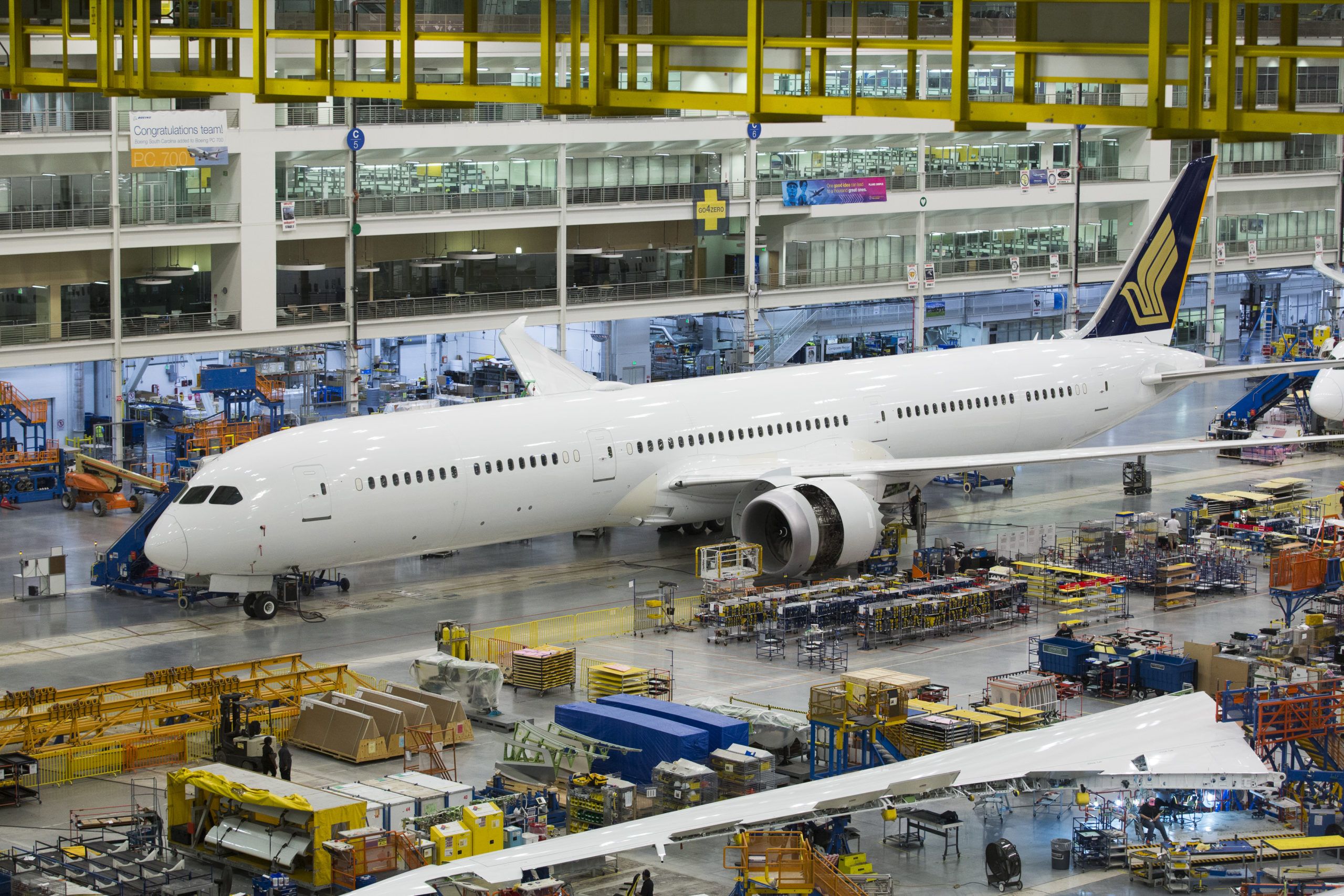The U.S. Department of Transportation (DOT) Office of Inspector General (OIG) has announced plans to audit of the FAA’s oversight of Boeing 737 and 787 production. According to a memorandum released by the OIG, the audit will focus on the FAA’s process for “identifying and resolving production issues and addressing allegations of undue pressure within the production environment.” The audit is expected to begin in July.
“A number of complaints to Congress, FAA, and our office have alleged ongoing production deficiencies and undue pressure on Boeing staff in the 737 and 787 production lines,” Assistant Inspector General for Aviation Audits Nelda Smith wrote in the memo (PDF). “In light of these concerns, the Chairmen and Ranking Members of the House Transportation and Infrastructure Committee and its Subcommittee on Aviation requested that we evaluate FAA’s oversight of Boeing aircraft production.”
As previously reported by AVweb, the FAA announced last February that its inspectors would be signing off on each new 787 due to a number of quality control problems on the production line. The company halted deliveries of the model in May 2021 and, according to the OIG, has not delivered a 787 in over a year. The OIG says the audit will be conducted at FAA Headquarters, regional offices responsible for overseeing Boeing production and relevant Boeing locations.




































The FAA will inspect? Those people who haven’t worked in two years but never lost a dime in pay? “undue pressure on Boeing staff in the 737 and 787 production lines,” I’d bet those complaints originated from snowflakes working in a union shop. They should be glad they have a job at all. Move everything to the non-union South.
This is precisely the attitude that brought us MCAS.
Perhaps you don’t know where the 787 production line is? It is in South Carolina.
Also that most of the production problems that occurred before the Everett line was shut down happens at the SC plant.
@KentM: Ignorance and Hate such as you’ve displayed don’t help the country. Boeing laid off 1,239 engineers and 3792 Machinists over the last two years…and, BTW…those Unions help non-union workers TOO by obtaining benefits which are given to non-union members also.
Get smart, support fellow Americans, or close the pie hole.
It would not surprise me if this did not force Boeing to file Chapter 11. Picture this, Boeing’s own QA are inspecting/validating, who are being validated by FAA Inspectors, who will now be second guessed by DOT.
I was in a similar situation early in my career in the Nuclear Submarine Overhaul program during the 70s, as a Civilian Engineer for Litton Industries. We finally had to revert to a “Cost Plus” contract with the government to keep in the black. Never again was a Submarine delivered on time or within budget. Sadly, Boeing won’t have the same options since they’re not the customer!
I vividly remember the shouts of “to big to fail” when this fiasco was initially reported and for some time there after. Well, guess what, “not.”
Who will audit the DOT’s auditors?
This is not about the government, the FAA, or the good folks doing the real work at Boeing. This was brought on by Boeing’s own management and corporate malfeasance and resulting culture with respect to putting $ above all. Watch the documentary “Downfall”. The root cause of this swing in oversight by the government, the MCAS disaster, quality and outsourcing issues, at Boeing, and other similar issues at many aerospace companies is that they are all now run by MBAs, Corporate climbers, and other empty suits, instead of real engineers. A good engineer can run a company (note I didn’t say all engineers, good engineers have leadership and people skills too), it’s child’s play compared to making a machine fly in the air or go to space. A good business person can’t necessarily be a good engineer. Walter Beech, Clyde Cessna, Jack Northrop, Donald Douglas, Jim McDonnel, Bill Boeing, Leroy Grumman, Chance Vought, were first engineers before their names became the businesses well know even outside the aerospace community. Unfortunately, most of corporate America values sizzle over steak, BS over real quality, and until engineers are valued again, we will have to guard against, putting bandaids on a fundamental engine airframe problem, and calling it a minor change.
I have had to balance the need to complete an aircraft project, satisfying regulators, overall safety and quality. Just complaining about the regulator’s ignorance (although sometimes true for sure) doesn’t get he job done, and neither does being a zealot for the free market. As always, and as all good engineers appreciate is that the best answer is in the middle. A trade the puts the highest quality and safest product possible (good engineers understand that they have lives in their hands) and still meet cost, schedule, and performance goals. Easy to say, hard to do. So save the now ubiquitous sound bite BS so common in the post twitternet universe, and let’s start holding each other to the highest standards of engineering and good business practices with reasonable regulation that made all of the aforementioned names giants in the aerospace business.
I’ll second that. I had to live through it as an engineer at Boeing Everett.
Excellent summary, JC.
Right on…
The problem with engineers is that under stress they are apt to blurt out the truth.
Actually, the problem is that managers make truth-telling a source of engineers’ stress.
Just ask Roger Boisjoly.